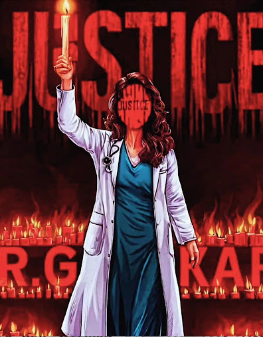West Bengal tragedy a reminder for systematic overhaul
The recent rape and murder of a 31-year-old postgraduate doctor at R.G. Kar Medical College and Hospital in Kolkata has led to a nationwide outcry, exposing the need for reform in the protection of medical professionals and women in general at workplaces. This tragic event, which took place on August 9, and the subsequent mob violence on August 15, has left a deep scar on the medical community and highlighted systemic failures that need to be addressed.
The response to this heinous crime has been widespread, with protests taking place across India. These demonstrations are not merely reactions to a single incident but are also a reflection of the frustration towards the inadequate protection to those working in the healthcare sector.
The Supreme Court’s intervention, including the deployment of Central Armed Police Forces (CAPF) at the hospital and the formation of a 10-member National Task Force (NTF), is a crucial step towards addressing this issue. The NTF is tasked with developing a safety protocol for doctors, with an interim report due in three weeks and a final one in two months.
While these measures are a positive start, they are not sufficient on their own. These changes, even though necessary, must be part of a larger systemic overhaul. The implementation of the NTF’s recommendations must be effective, translating into lasting changes in society regarding the safety and working conditions of not only medical professionals but also women across work[1]places. The incident also calls for a cultural shift towards greater respect and support for those who dedicate their lives to the healthcare sector. Addressing societal attitudes that perpetuate violence and ensuring justice for victims are essential components of this reform. The role of educational institutions in instilling values of respect and equality from a young age cannot be overstated. Such foundational changes in societal norms will help in building a culture of safety and respect. The Supreme Court’s warning to the West Bengal government against suppressing peaceful protests allows the very right of freedom of speech and expression to thrive, thereby giving a voice to the voiceless. While the nation processes this tragedy, it is crucial to focus on creating a safe environment for healthcare workers and ensuring that such incidents don’t happen in the first place. The memory of the young doctor should drive the nation towards a comprehensive and lasting change, protecting those who protect us.

